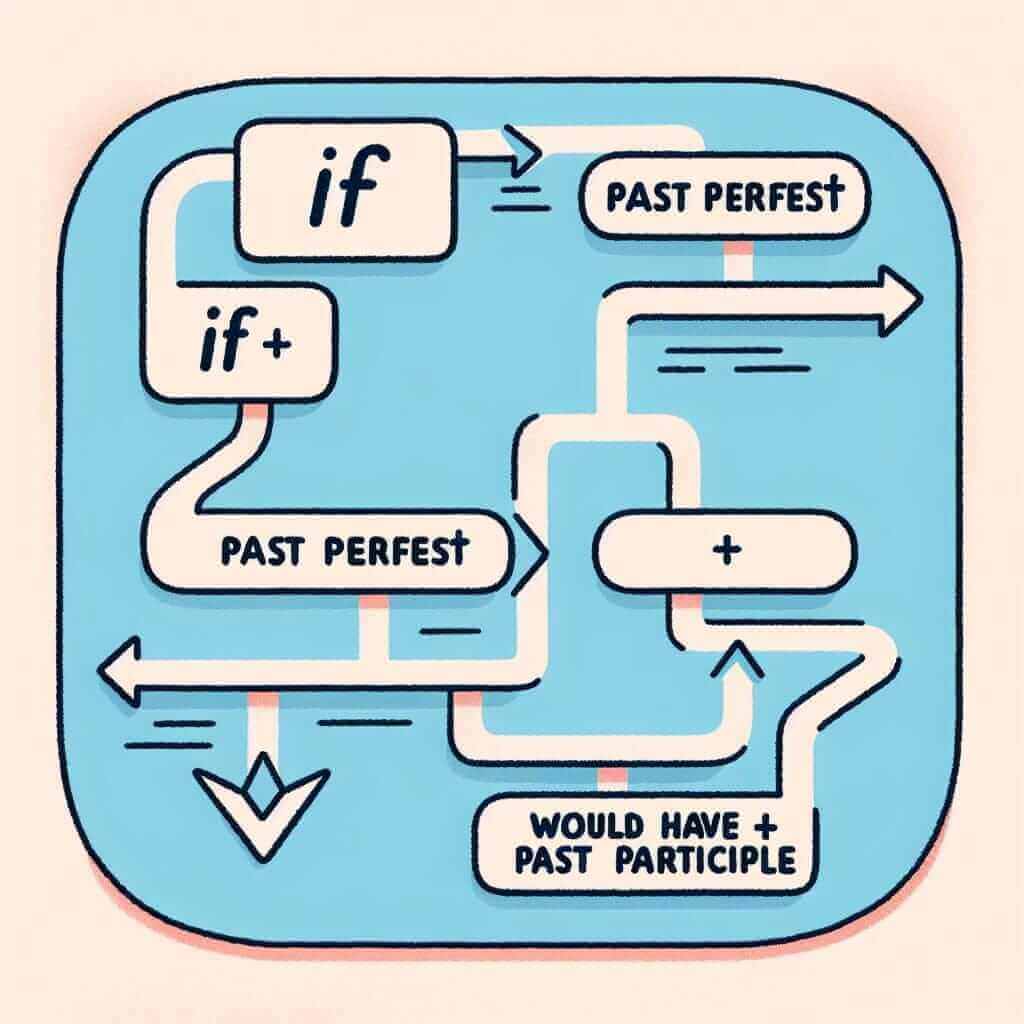The phrase “Had we known, we would have acted differently” exemplifies the third conditional in English, a grammatical structure that often trips up IELTS test-takers. This structure is crucial for expressing hypothetical situations in the past and their imagined consequences. Mastering it can significantly boost your score, especially in the Speaking and Writing sections.
Let’s consider a few examples of how the third conditional might appear in different sections of the IELTS exam:
Speaking:
- Examiner: “What do you regret not doing earlier in life?”
- You: “Had I known the importance of networking, I would have joined more clubs in university.”
Writing Task 2:
- “Some argue that history repeats itself. However, had we learned from past mistakes, many current conflicts could have been avoided.”
Listening:
- You might hear a speaker say, “If I had known the traffic would be so bad, I would have left earlier.”
In each of these scenarios, the third conditional is used to discuss hypothetical situations and their imagined outcomes, a skill highly valued in the IELTS exam.
Understanding the Third Conditional
The third conditional is used to talk about hypothetical or imagined situations in the past. It allows us to express regret, speculate on different outcomes, and learn from past experiences.
Structure and Tenses
The third conditional follows a specific structure:
[If + past perfect, … would have + past participle] OR [Had + subject + past participle, … would have + past participle]
Breakdown:
- If Clause: This clause sets up the hypothetical past condition. It uses the past perfect tense (had + past participle).
- Main Clause: This clause describes the imagined consequence in the past. It uses “would have” + the past participle of the main verb.
Examples and Analysis
- If I had studied harder, I would have passed the exam. (This implies that the speaker didn’t study hard and therefore failed the exam.)
- She would have traveled the world if she had saved more money. (This suggests that she didn’t save enough money, so she couldn’t travel the world.)
- Had they listened to my advice, they wouldn’t have made such a mistake. (This implies they didn’t listen to the advice and consequently made a mistake.)

Using the Third Conditional in IELTS
Speaking
In the IELTS Speaking test, using the third conditional demonstrates your ability to express complex thoughts and hypothetical situations, showcasing a higher level of fluency and grammatical range.
Example:
- Examiner: “What are your plans for the future?”
- You: “Well, I’m hoping to study abroad. Had I not chosen to take this IELTS exam, I wouldn’t have considered this opportunity.”
Analysis: This response effectively uses the third conditional to link a past decision (taking the IELTS exam) with a present opportunity (studying abroad).
Writing Task 2
The third conditional is particularly useful for crafting persuasive arguments and presenting hypothetical scenarios in Writing Task 2.
Example:
“Many argue that technology has made us less social. However, without social media platforms, many people would have remained isolated during the recent pandemic. Had these tools not been available, maintaining connections would have been far more challenging.”
Analysis: Here, the third conditional strengthens the argument by presenting a counter-factual scenario – a world without social media during the pandemic. This illustrates the positive impact of technology on social connection in a specific context.
Reaching Higher Bands
To score highly in the IELTS, it’s not enough to simply use the third conditional correctly. You must also:
- Use it naturally and appropriately. Don’t force it into your responses.
- Show a range of grammatical structures. Combine the third conditional with other complex structures.
- Focus on fluency and pronunciation. Practice speaking the third conditional clearly and confidently.
Common Errors to Avoid
- Incorrect tense sequence: Using the wrong tense in either the “if” clause or the main clause is a common mistake.
- Incorrect: If I would have known, I would have come earlier.
- Correct: If I had known, I would have come earlier.
- Overusing the third conditional: While it’s good to demonstrate your grammar skills, using the third conditional excessively can sound unnatural.
- Confusing the second and third conditional: Remember, the second conditional talks about hypothetical situations in the present or future, while the third conditional deals with the past.
Conclusion
Mastering the third conditional is a valuable asset for achieving a high IELTS score. By understanding its structure, practicing its use, and being mindful of common errors, you can confidently incorporate this grammatical structure into your speaking and writing, showcasing a greater command of the English language. Remember, consistent practice and focused learning are key to achieving your desired IELTS band score.